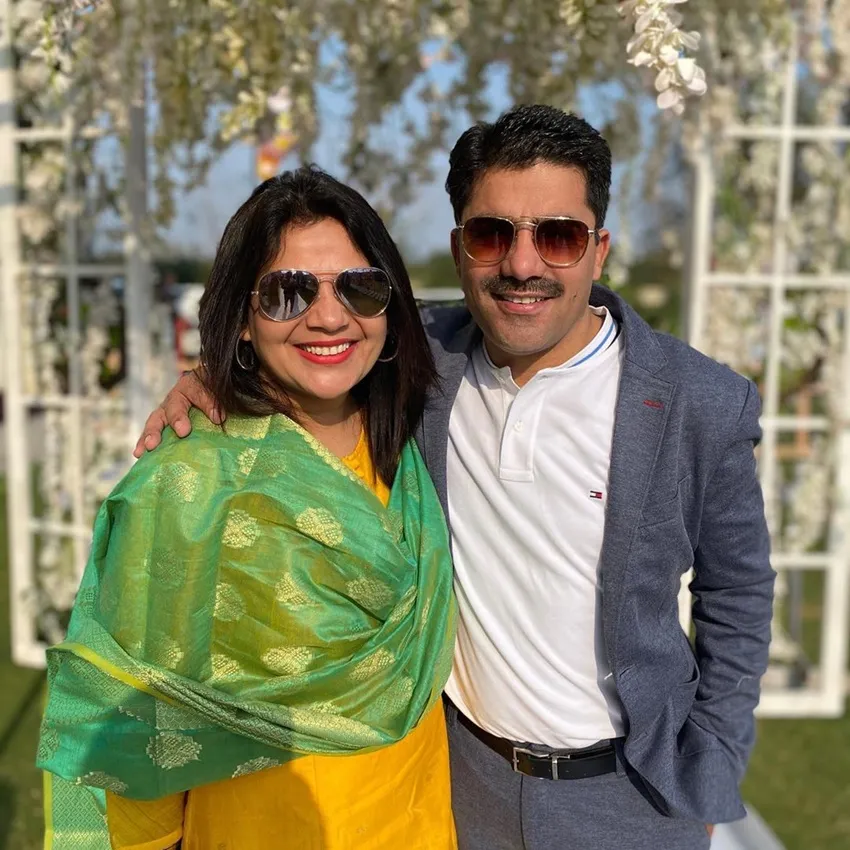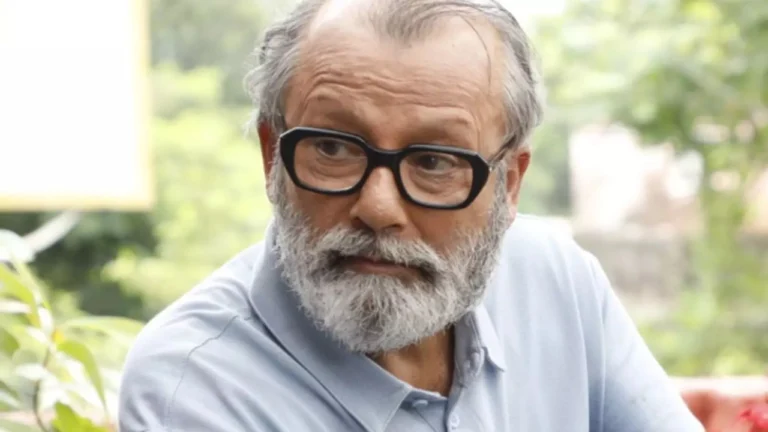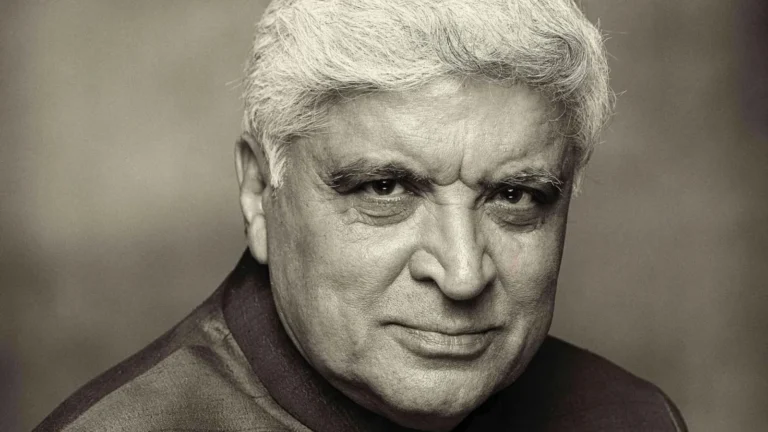Rohit Sardana: A Voice of Bold and Fearless Journalism in India
Rohit Sardana was a prominent Indian journalist known for his assertive reporting style, fearless debates, and dedication to the field of journalism. Throughout his career, Sardana focused on bringing important issues to the forefront, often unafraid to tackle sensitive topics and hold powerful individuals accountable. As a well-recognized news anchor and journalist, Sardana’s career in broadcast journalism included influential roles on networks like Zee News and Aaj Tak, where he presented news that resonated with millions of viewers across India.
In this article, we explore Rohit Sardana’s early life, his career highlights, his unique journalistic approach, and the legacy he left behind in Indian journalism.
Rohit Sardana : Early Life and Background
Childhood and Education
Rohit Sardana was born on September 22, 1979, in Kurukshetra, Haryana, India. Growing up in Haryana, Sardana was known for his inquisitive mind and keen interest in social and political issues. His family valued education and discipline, and he was encouraged to pursue a career that would allow him to make a meaningful impact on society. His curiosity and passion for current events naturally led him toward a career in journalism.
Sardana completed his schooling in Haryana and later pursued a degree in psychology at Guru Jambheshwar University of Science and Technology, Hisar, Haryana. He then obtained a degree in Mass Communication, which laid the foundation for his career in journalism. This educational background provided him with a thorough understanding of communication principles and enhanced his critical thinking skills.
Rohit Sardana Entry into Journalism
After completing his studies, Rohit Sardana began his journalism career with a deep commitment to uncovering the truth and a desire to make a difference. He initially worked with local news channels before moving on to bigger opportunities, where he could have a larger platform. His early years in journalism helped him develop the skills required to succeed in the fast-paced world of broadcast media, and his dedication to his work quickly earned him recognition.
Rohit Sardana Career Highlights and Rise to Prominence
Early Career at Zee News

Rohit Sardana’s big break came when he joined Zee News, one of India’s leading Hindi news channels. During his time at Zee News, Sardana established himself as a forceful anchor with a unique approach to reporting. He gained popularity for his program Taal Thok Ke, which was known for its aggressive and unfiltered debates on current political and social issues.
Taal Thok Ke allowed Rohit Sardana to address pressing matters and discuss them openly, often inviting guests from various backgrounds to share their perspectives. His ability to handle intense debates, engage with guests, and ask tough questions resonated with viewers, making him a popular figure in Hindi journalism. The success of Taal Thok Ke contributed to Sardana’s reputation as a no-nonsense journalist who was unafraid to confront difficult topics head-on.
Shift to Aaj Tak and Dangal
In 2017, Rohit Sardana made a significant career move when he joined Aaj Tak, another leading Hindi news channel. At Aaj Tak, he began hosting Dangal, a debate show similar to Taal Thok Ke but with an even larger audience reach. Dangal quickly became one of the most-watched news debate programs in India, thanks to Sardana’s skill in addressing controversial issues, his command over language, and his straightforward approach.
Under Sardana’s stewardship, Dangal tackled issues ranging from political controversies and social debates to national security and international affairs. His work on Dangal earned him critical acclaim and a massive following, as audiences appreciated his candid and fearless journalistic style. Through Dangal, Rohit Sardana cemented his place as one of India’s most prominent news anchors.
Journalistic Style and Approach
Direct and Unfiltered Communication
Rohit Sardana was known for his no-nonsense style of journalism, characterized by direct and unfiltered communication. His approach was often blunt, which allowed him to connect with viewers who wanted to see journalists hold power to account without any biases. Sardana’s straightforward manner of addressing issues resonated with many, particularly those who felt that the mainstream media often skirted around pressing issues.
Sardana’s style was also reflective of his ability to cut through the noise and address the core of an issue. By asking hard-hitting questions and inviting guests to discuss both sides of a topic, Sardana created a platform where open discussion could occur, giving viewers a chance to form their own opinions on complex issues.
Advocacy for National Interest
One of Rohit Sardana’s defining traits was his dedication to promoting the national interest. Throughout his career, Sardana often highlighted issues affecting India’s social and economic landscape, including national security, cultural identity, and economic progress. His approach to journalism was driven by a desire to raise awareness about matters that he believed were critical for India’s growth and prosperity.
Whether discussing issues related to India’s borders, internal security, or the nation’s unity, Sardana always emphasized the importance of placing national interest above political or personal biases. This perspective earned him a loyal following of viewers who admired his dedication to the country and his willingness to tackle sensitive subjects.
Championing Social Issues
In addition to political matters, Rohit Sardana frequently addressed social issues on his programs. From debates on women’s rights and education to conversations about caste-based discrimination and religious harmony, Sardana was passionate about creating awareness around social challenges in India. His interest in such topics reflected his commitment to using journalism as a tool for societal change.
Sardana’s dedication to social issues endeared him to viewers who felt that he genuinely cared about addressing the struggles faced by everyday Indians. By bringing these issues into mainstream debates, he played a role in fostering a more informed and socially aware audience.
Rohit Sardana Major Contributions to Indian Journalism
Elevating Hindi Journalism

One of Rohit Sardana’s most significant contributions to Indian journalism was his role in elevating Hindi journalism. As one of the leading Hindi news anchors, he used his platform to make Hindi-language journalism more dynamic, engaging, and relevant to a wider audience. His programs brought Hindi journalism to the forefront, demonstrating that Hindi media could be just as impactful and influential as English-language news.
By choosing to work primarily in Hindi, Sardana was able to reach a broader audience, particularly in rural and semi-urban areas where Hindi is the primary language. His efforts helped bridge the gap between urban and rural news consumers, contributing to a more informed and connected Indian population.
Setting a Standard for Debate Programs
Rohit Sardana’s work on Taal Thok Ke and Dangal set a new standard for debate programs in India. His ability to host constructive, albeit intense, debates on complex topics demonstrated the power of open dialogue. Sardana’s approach became a model for other news anchors, who began emulating his style in an attempt to create more engaging and viewer-centered programming.
Through his debate programs, Sardana showed that serious journalism could still attract viewership and inspire public discussion. His shows became a platform for discussing a wide range of issues, from policy-making and governance to societal challenges, influencing the format and structure of televised debates in India.
Mentorship and Encouraging Young Journalists
Throughout his career, Rohit Sardana was known for his mentorship and support of young journalists. His experience and dedication to journalism made him a role model for aspiring journalists, who looked up to him for guidance and inspiration. Sardana often shared his insights into journalistic ethics, the importance of truth in reporting, and the role of journalism in a democratic society.
Through his work, Sardana encouraged young journalists to approach their careers with a commitment to integrity, honesty, and fearlessness. His mentorship extended beyond professional advice, as he often emphasized the importance of personal resilience and dedication in the pursuit of truth.
Legacy and Lasting Impact
A Voice for the Voiceless
Rohit Sardana’s journalism gave a voice to individuals and communities who often felt marginalized. By covering issues affecting rural areas, underrepresented groups, and economically disadvantaged communities, he helped bring attention to the concerns of those who rarely receive a platform. Sardana’s work demonstrated the importance of inclusivity in journalism, as he strived to make his programs accessible and relevant to people from all walks of life.
His approach to journalism reminded audiences that the media’s role is not only to inform but also to advocate for those who lack the resources to bring their issues to the national stage.
A Lasting Influence on Hindi Journalism
Rohit Sardana’s contributions to Hindi journalism will continue to influence the industry for years to come. His ability to create impactful and engaging content in Hindi set a benchmark for others in the field, proving that Hindi journalism can have a wide-reaching impact. Sardana’s legacy lives on in the format of debate shows, the approach of Hindi news programs, and the dedication of journalists inspired by his work.
His passing on April 30, 2021, due to complications from COVID-19, was a tremendous loss to the field of journalism. His absence left a void in Hindi media, but his impact continues to inspire new generations of journalists who seek to honor his legacy by upholding the values he championed.
Conclusion: Rohit Sardana’s Enduring Legacy in Journalism
Rohit Sardana’s journey from a passionate young journalist to one of India’s most respected news anchors is a testament to his dedication, courage, and commitment to truth. Through his work on Taal Thok Ke, Dangal, and his overall career in Hindi journalism, Sardana redefined what it meant to be a journalist in India. His unfiltered approach, passion for national issues, and willingness to address topics that others might avoid made him a voice that resonated deeply with the public.
Sardana’s legacy is not only in the groundbreaking debates he hosted or the hard-hitting questions he asked but also in the lasting influence he left on the field of Hindi journalism. He inspired journalists to hold power accountable, advocate for the voiceless, and prioritize integrity and honesty in reporting. His impact on Indian journalism will be remembered as one that raised the standard for media’s role in a democracy, fostering a generation of viewers and journalists with a renewed appreciation for fearless journalism.



